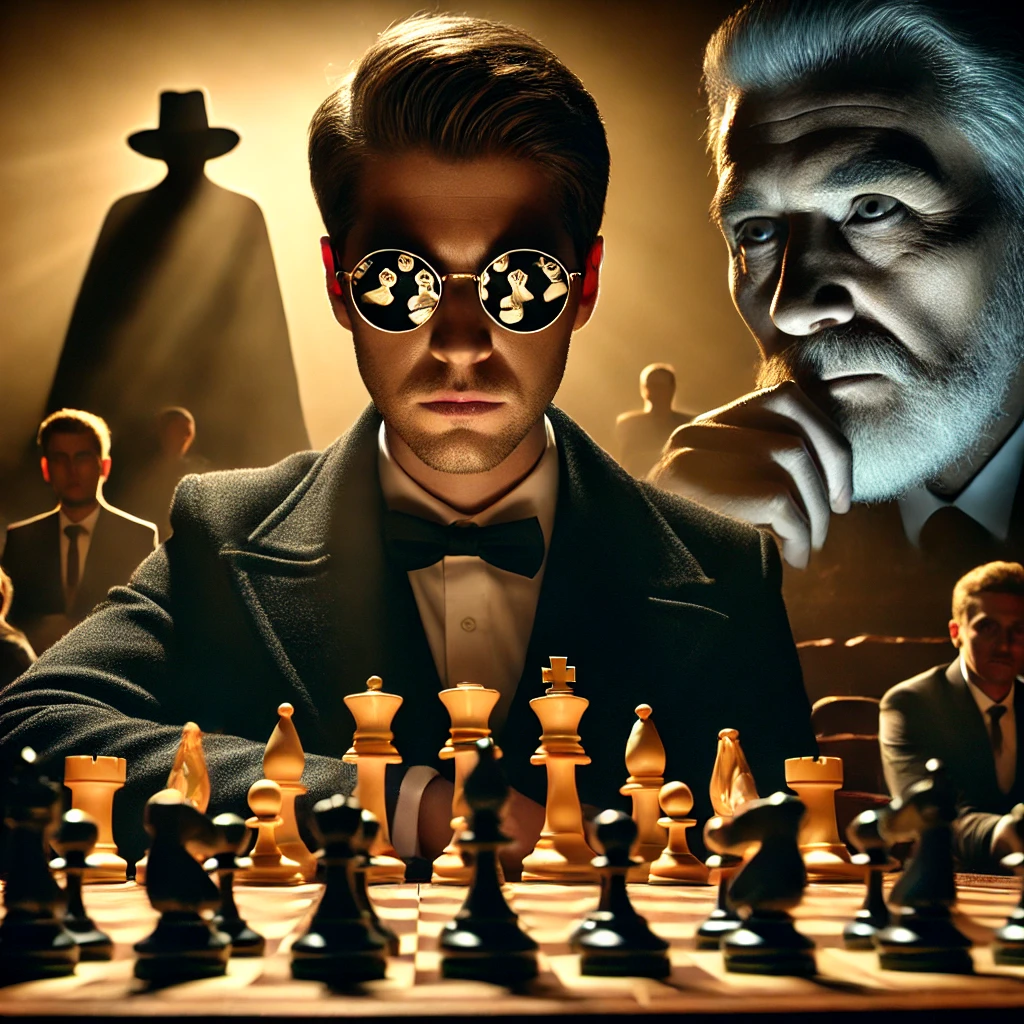Parapsychological Phenomena in Chess: The Case of Zohar and the Korchnoi – Karpov Match
July 14, 2024
Parapsychology is a field that studies phenomena such as telepathy, precognition, and psychokinesis. Although it is often subject to skepticism and criticism due to the lack of scientific evidence, it is intriguing to consider its impact on various aspects of life, including chess. One of the most famous cases where parapsychology is mentioned in chess is the match between Viktor Korchnoi and Anatoly Karpov in 1978, known for its controversial events and the involvement of Zohar, a Soviet parapsychologist.

Parapsychological Phenomena in Chess
Background of the 1978 World Chess Championship
The 1978 World Chess Championship match between Korchnoi and Karpov took place in Baguio, Philippines. It was a politically charged encounter, given that Korchnoi had defected from the Soviet Union, while Karpov represented the Soviet establishment. The atmosphere was tense, with political and psychological pressures further heightening the rivalry between the players.
Zohar and Parapsychology in Chess
During the match, Korchnoi claimed that Soviet representatives were using parapsychological methods to distract him. He specifically accused Dr. Vladimir Zukhar (known as Zohar), a Soviet parapsychologist, of attempting to mentally disrupt his game. Zohar was present in the audience, and Korchnoi believed that Zohar was using his “psychic powers” to affect his concentration and gameplay.
Possible Parapsychological Influence on Chess Opponents
Korchnoi’s accusations of parapsychological interference stemmed from his belief that Zohar was capable of using telepathy or other psychic phenomena to distract and influence him during the match. The theory was that Zohar could mentally project thoughts or feelings that would cause Korchnoi to lose focus or second-guess his moves. This kind of mental distraction could be incredibly disruptive in a game like chess, where concentration and clear thinking are paramount. The presence of Zohar, seated in a way that allowed him to maintain eye contact with Korchnoi, added to the belief that some form of psychic interference was at play.
Accusations and Controversies in the Korchnoi - Karpov Match
Korchnoi accused Karpov and his team of using parapsychology as a means of psychological warfare. According to Korchnoi, Zohar was positioned to stare directly at him during the games, attempting to distract and influence his play. These claims did not gain widespread support but added to the already high tension between the two camps.
Psychological Warfare in Chess
The match was filled with psychological tactics from both sides. For their first game, Korchnoi wore mirrored sunglasses to hide his eyes from Karpov’s gaze, which had bothered him in their previous match. Karpov complained that the mirrored glasses reflected light into his eyes. Karpov also requested that Korchnoi’s chair be examined for “banned devices” and complained that Korchnoi distracted him by turning in his chair during games. Additionally, Karpov demanded that the chemical composition of the yogurt Korchnoi consumed during the games be analyzed, suspecting it contained substances that aided his concentration.
Specific Facts About the 1978 World Chess Championship
- The match lasted for 32 games, with Karpov winning 6, Korchnoi winning 5, and 21 games ending in a draw.
- The atmosphere of the match was extremely tense, with political and psychological elements further intensified due to Korchnoi’s status as a dissident.
- Zohar was present throughout the match, which Korchnoi used as an argument for his claims of parapsychological interference.
- At one point, Korchnoi insisted that Zohar be removed from the audience, but the organizers refused, further heightening the tension.
Outcome and Legacy of the Korchnoi - Karpov Match
The match ended with Karpov retaining his title as world champion with a score of 6-5, along with 21 draws. Despite the loss, Korchnoi became a hero to many who saw him as a fighter against the Soviet regime. The controversies surrounding parapsychology have remained part of chess mythology and a topic of many discussions among chess enthusiasts.
Parapsychology's Role in Chess
Although parapsychology is not recognized as a valid scientific discipline, its role in the chess match between Korchnoi and Karpov adds a layer of intrigue and mystery to this already historic event. Whether you believe in paranormal abilities or not, the case of Zohar remains a fascinating example of how beliefs and doubts can weave into the complex web of human relationships and competitions. The Korchnoi – Karpov match of 1978 remains one of the most interesting and controversial moments in chess history.
